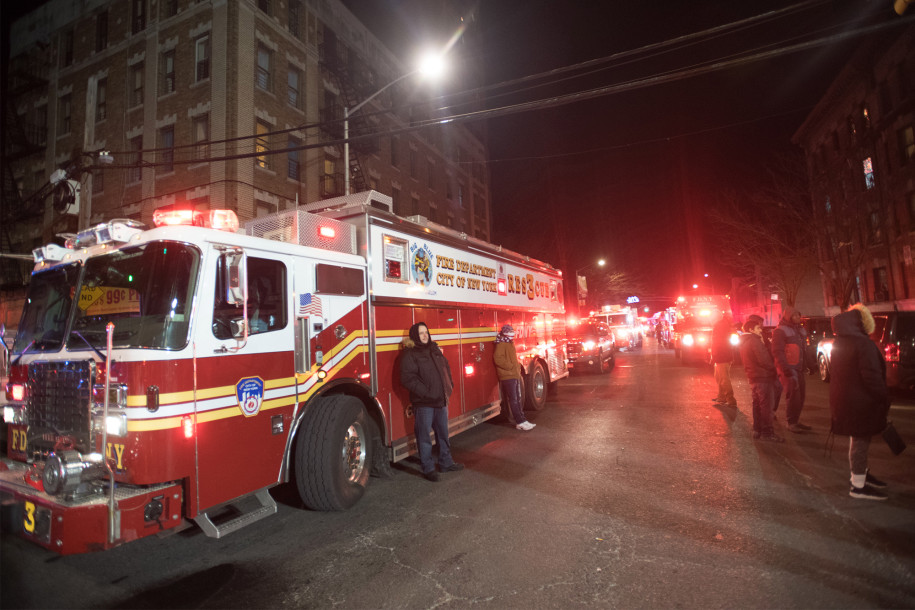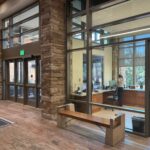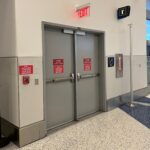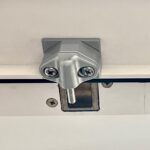People often ask me about potential liability exposure – for example, could a locksmith be held liable for installing non-code-compliant hardware or will a facility manager face liability for failing to maintain openings in code-compliant condition? I can’t answer that question. It’s impossible to know whether a problem will occur in the future, and whether the doors and hardware will be blamed. With that said, I always err on the side of caution because I have seen tragedies where lawsuits included all parties that were even remotely involved.
An apartment fire that occurred in the Bronx last December illustrates this point. The fire began with a young child playing with knobs on the stove. When his mother fled the burning apartment with her two children, the apartment door remained open, allowing smoke and flames to spread up the stairwell. This compromised the main escape route to the building – the apartment entry doors should have been self-closing but were not.
Victims who were injured in the fire and families of those who died have now filed a lawsuit for $100 million against the city and others, including the door manufacturer, gas company, stove manufacturer, property manager, and building owner. It remains to be seen how the insurance companies will handle the associated claims, considering the deficiencies found in the building.
Facility managers and building owners who are ignoring the code requirements for annual fire door inspections, may someday find themselves held liable for damage, fatalities, and injuries caused by fault fire doors. Is it worth the risk?
~~~
FDNY footage from the aftermath of the fire (New York Post):
~~~
Related Posts:
You need to login or register to bookmark/favorite this content.







Picture yourself on the witness stand at the trial of a fire where people died and the question you are asked is,
“Did you specify/supply/install hardware that you knew to not be compliant with life safety codes?”
How will you answer that question?
I have attended the full gamut of DHI classes during my career, but only that opening statement by an instructor has stuck with me all these years.
I always err on the side of caution.
Working at a past company, I was asked to provide non-compliant hardware on stair tower doors. It was “approved” by the fire marshal despite posing such a danger (they wanted fail-safe e-strikes with NL devices…). After struggling with the fire-marshal, GC, and electrical contractor, I decided to go to the owner of my company because I was going to walk from the project if he couldn’t help me get everyone to come around.
He asked me if we would be legally liable if something happened, and I said I didn’t know, and I didn’t care. If you’re asking if you’re opening yourself up to a lawsuit, there are probably better reasons not to do it. The public puts their trust in people like us to do the right thing and not put them in danger.
The good news is everyone finally started listening and we finished the job the right way.
Great job Joe – thanks for sharing your experience!
– Lori
I’ve had to testify as an expert witness in a school fire case. Do the right thing when specifying or supplying, the customer is not always right